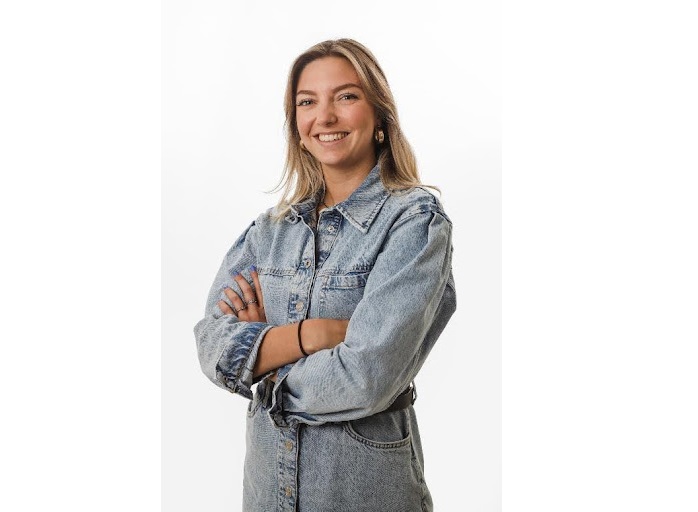
Hoe is Donald Trump president van de Verenigde Staten geworden? Waarom worden de sneakers van Nike geassocieerd met Black Lives Matter? Hoe is wapenbezit een centrale kwestie geworden in de Amerikaanse politiek? Wat bedoelen mensen precies als ze zeggen dat gender 'performatief' is?
Bij American Studies leer je alles over de populaire cultuur, politiek, geschiedenis, literatuur, economie, raciale verhoudingen en religies van de Verenigde Staten. Ook bestudeer je de verbanden tussen Noord-, Midden- en Zuid-Amerika en de rest van de wereld. American Studies is niet puur gericht op ‘Amerika’. Door het internationale karakter en inter-Amerikaanse perspectief bereidt deze opleiding je voor op een internationale carrière.
De gehele opleiding wordt in het Engels gegeven door een internationaal team van topdocenten die je kennis laten maken met diverse wetenschappelijke disciplines. De VS is weliswaar je ‘case study’, maar de schrijf-, spreek- en onderzoekvaardigheden die je tijdens de opleiding opdoet zijn ook toepasbaar in andere gebieden dan de Amerikaanse cultuur en politiek.
De Verenigde Staten, ooit beschouwd als ‘het land van de toekomst’, is ’s werelds oudste ononderbroken democratie. Tijdens de bacheloropleiding American Studies leer je actuele politieke en maatschappelijke debatten beter te begrijpen, zodat je je als geïnformeerde burger in eigen land en de wereld kunt bewegen.
In het eerste jaar volg je basisvakken over de Amerikaanse cultuur en geschiedenis, verken je de relatie tussen de VS en de rest van de wereld, en doe je academische schrijfvaardigheid op.
In The Americas I en II leer je hoe de VS een wereldwijde supermacht is geworden en waar de hedendaagse politieke partijen Democraten en Republikeinen vandaan komen. Theories of Culture I gaat over het thema 'identiteit'. Dit vak helpt je op nieuwe manieren na te denken over onderwerpen als ras, klasse en gender. In American Studies in Practice I ga je aan de slag met je Engelse schrijf- en spreekvaardigheid. Dit vak helpt je zodoende in al je andere vakken beter te presteren. In American Politics I en II bestudeer je de oprichtingsdocumenten van de Verenigde Staten en leer je meer over democratie door middel van praktische debatten over controversiële kwesties. In de vakken North & South Americans I en II, ten slotte, lees je klassieke Latijns-Amerikaanse en Canadese literatuur en ga je dieper in op belangrijke vraagstukken als immigratie, handelsbeleid en de War on Drugs.!
| Semesters | ||||
|---|---|---|---|---|
| VakkenVakkencatalogus > | 1a | 1b | 2a | 2b |
| American Studies in Practice I a/b (10 EC) | ||||
| The Americas I a/b: The American Century and Beyond (10 EC) | ||||
| Theories of Culture I a/b: Race, Class and Gender (10 EC) | ||||
| American Politics I & II (10 EC) | ||||
| North & South Americans I & II (10 EC) | ||||
| The Americas II a/b: New Frontiers (10 EC) | ||||
In het tweede jaar verdiep je je kennis van de geschiedenis, politiek en cultuur. Daarnaast kun je zelf vakken kiezen die je interessant vindt. In Theories of Culture II worden klassieke politieke en mediatheorieën behandeld die je helpen op nieuwe manieren na te denken over problemen. In The Americas III leer je meer over hoe hedendaagse kwesties als raciale rechtvaardigheid en regionale diversiteit hun wortels hebben in de ontmoetingen en conflicten van de vroegmoderne tijd.
In American Studies in Practice II schrijf je stap voor stap je eerste onderzoekverslag over een onderwerp van jouw keuze. In het tweede semester ga je keuzes maken. Ben je geïnteresseerd in media en populaire cultuur? Dan kun je in de Media specialisatie meer leren over de invloed die technologische veranderingen hebben op de cultuur die wij consumeren. Als je belangstelling meer uitgaat naar economie en politiek, dan is Global USA misschien meer iets voor jou. De vakken binnen de Special Topics verschillen per jaar. Voorbeelden zijn 'Canada's Cultural Mosaic', 'American Conspiracy Culture' en 'Pioneer Landscapes'. In deze vakken zijn de opdrachten vaak een stuk gevarieerder dan 'gewoon' een essay schrijven. Wat dacht je bijvoorbeeld van een TED Talk opnemen, een redactioneel commentaar schrijven, een expositie ontwerpen of helpen met de ontwikkeling van een app? Je gebruikt hierbij je analytische, onderzoeks- en schrijfvaardigheden op nieuwe manieren.
| Semesters | ||||
|---|---|---|---|---|
| VakkenVakkencatalogus > | 1a | 1b | 2a | 2b |
| Theories of Culture II: Media Theory (5 EC) | ||||
| American Studies in Practice II a/b (10 EC) | ||||
| The Americas III a/b: From Exploration to Early Republic (10 EC) | ||||
| Theories of Culture II: Political Theory (5 EC) | ||||
| Global USA I & II (10 EC, keuzevak) | ||||
| Media Specialization I & II (10 EC, keuzevak) | ||||
| Special Topics (choose 4 courses of 5 EC each) (20 EC) | ||||
In het derde jaar verdiep je je verder en word je voorbereid op het leven na je bachelor, of dat nu op de arbeidsmarkt is of in een masteropleiding. In het eerste semester kun je in het buitenland gaan studeren, stagelopen als onderdeel van een Career Minor, of via een Facultaire of Universitaire Minor vakken volgen bij een andere opleiding aan de RUG.
| Semesters | ||||
|---|---|---|---|---|
| VakkenVakkencatalogus > | 1a | 1b | 2a | 2b |
| Minor (30 EC) | ||||
| Mobility, Migration, Transculturation (10 EC) | ||||
| BA Thesis (10 EC) | ||||
| Theories of Culture III a/b (10 EC) | ||||
Let op: hierboven staat het programma van het huidige collegejaar (2025-2026). Per 2026-2027 wijzigt het vakkenaanbod van deze opleiding. In het najaar van 2025 wordt hierover meer bekend.
| Programma-opties |
|---|
| Minoren (minor) Het vijfde semester besteed je aan je minor: een pakket samenhangende vakken dat toekomstgericht is. Het bereidt je voor op een vervolg in een mastertrack of op de arbeidsmarkt. Kies uit een careerminor, buitenlandminor, universitaire minor of facultaire minor. |
| Rijksuniversiteit Groningen Honours College (honoursprogramma) Het Honours College geeft getalenteerde, gemotiveerde studenten de kans om nog meer uitgedaagd te worden door Honours programma's te volgen en deel te nemen aan tal van andere activiteiten. Het Honours College bestaat uit een verbredend deel en een verdiepend deel en heeft een studielast van 30 ECTS studiepunten naast de 180 ECTS studiepunten uit je reguliere bachelorprogramma. |
Als onderdeel van je studie American Studies aan de Rijksuniversiteit Groningen kun je het eerste semester van je derde en daarmee laatste jaar in de Verenigde Staten studeren. Als je hiervoor geselecteerd wordt, kun je je inschrijven voor allerlei vakken aan een van onze hooggewaardeerde Amerikaanse partnerinstellingen.
Hier krijg je de kans om alles wat je in de opleiding hebt
geleerd zelf mee te maken. Een waardevolle ervaring, op zowel
studie- als persoonlijk gebied!
Meer informatie over uitwisselingsplekken vind je op de website van
de afdeling American
Studies
If you have passed the VWO (pre-university education) exam in English, you satisfy the language requirement.
If you have passed the VWO (pre-university education) exam in English, you satisfy the language requirement.
If you have passed the VWO (pre-university education) exam in English, you satisfy the language requirement.
If you have passed the VWO (pre-university education) exam in English, you satisfy the language requirement.
Language requirement English: A VWO diploma or a subject certificate for VWO English (mark 6 or higher), minimum requirement of TOEFL iBT 90 (with a minimum of 21 on all items), or IELTS 6.5 (with a minimum of 6 on all items) or Cambridge C1 Advanced or C2 Proficiency with a minimum score of 180.
For more information, see: https://www.rug.nl/let/studeren-bij-ons/bachelor/aanmelding-en-inschrijving/language-requirements-ba
De opleiding verzorgt matching. Deelname is optioneel. Het advies is niet bindend.
De Faculteit der Letteren gaat er van uit dat jij, via een bezoek aan de Open dagen, deelname aan een Eén Dag student en/of aan een Webklas, jezelf goed hebt voorbereid op de opleiding van jouw keuze. Op basis van deze voorlichtingsactiviteiten bepaal jijzelf of je goed matcht met de opleiding.
Vragen over matching bij de Faculteit der Letteren? Hier kun je verdere informatie vinden: https:/www.rug.nl/matching
| Type student | Deadline | Start opleiding |
|---|---|---|
| Nederlandse studenten | 01 mei 2026 | 01 september 2026 |
| EU/EEA studenten | 01 mei 2026 | 01 september 2026 |
| non-EU/EEA studenten | 01 mei 2026 | 01 september 2026 |
The Faculty of Arts believes students can decide for themselves whether they match with their chosen program based on the available bachelor program information, by visiting the Open Days, and by participating in a Webclass and/ or Student for a Day. If you are unable to attend one of these activities, a final opportunity for matching is to contact one of the students of the program in June.
If you have any further questions about matching, check out: www.rug.nl/matching
| Specifieke eisen | Extra informatie |
|---|---|
| vooropleiding |
A Dutch VWO diploma, a German Abitur, an International Baccalaureate diploma, a European Baccalaureate or another diploma that is sufficient for acceptance to a Dutch university. For other VWO-equivalent qualifications, see: https://www.rug.nl/education/application-enrolment-tuition-fees/admission/procedures/application-informatie/with-non-dutch-diploma/entry-requirements/bachelor-entry-requirements/vwo-equivalent-qualifications. Students with a Dutch 'hbo propedeuse' diploma also need to meet the language requirements mentioned below. |
| overige toelatingseisen |
English language requirement: A VWO diploma or a subject certificate for VWO English (mark 6 or higher), minimum requirement of TOEFL iBT 90 (with a minimum of 21 on all items), or IELTS 6.5 (with a minimum of 6 on all items) or Cambridge C1 Advanced or C2 Proficiency with a minimum score of 180. |
| Type student | Deadline | Start opleiding |
|---|---|---|
| Nederlandse studenten | 01 mei 2026 | 01 september 2026 |
| EU/EEA studenten | 01 mei 2026 | 01 september 2026 |
| non-EU/EEA studenten | 01 mei 2026 | 01 september 2026 |
Veel studenten stromen na hun bachelor door naar een masteropleiding. Met een BA in American Studies heb je een ruime keuze in vervolg opleidingen, zoals de volgende mastertracks aan de RUG:
Als BA-student American Studies leer je:
• Ergens voor te staan - Wil je het verhaal achter de krantenkoppen begrijpen? In deze opleiding leer je de geschiedenis, theorie en technologieën van democratie kennen om zo een geïnformeerde burger van je eigen land en van de wereld te worden.
• De diepte in te gaan - In deze opleiding leer je geschiedkundige en culturele analyses uit te voeren en zodoende daadwerkelijke thema’s met kritisch inzicht en vanuit historisch perspectief te benaderen.
• De gedachtebubbel te doorprikken - De wereld houdt niet op bij het hek van de campus, en gedraagt zich niet volgens de regels van een bepaalde groep. Daarom leer je bij ons vragen vanuit elke mogelijke hoek te bestuderen.
• Zelfverzekerd te schrijven en spreken - In onze schrijfcursussen (Rhetoric & Composition I en II) kun je je Engelse taalvaardigheid aanscherpen zodat je in de toekomst zowel in Nederland als internationaal aan het werk kunt.
• Een indruk achter te laten - Via innovatieve lesopdrachten kun je contact maken met verschillende doelgroepen en platformen: je kunt bijvoorbeeld een TED Talk opnemen, een Tumblr-site maken, of een redactioneel commentaar schrijven dat misschien zelfs wel gepubliceerd wordt!
• Mee te praten - Een internationaal team van topdocenten stoomt je klaar om mee te doen in toonaangevend onderzoek in de geestes- en sociale wetenschappen. Onze BA-studenten hebben al presentaties gegeven op lokale en internationale wetenschappelijke congressen, en een aantal afgestudeerden zijn recentelijk toegelaten tot PhD-programma’s aan Brown University en de University of Michigan.
Journalistiek en media
Met je kennis van de Amerikaanse geschiedenis, cultuur en politiek kun je aan de slag voor internationale media of zelf nieuwe platformen bouwen voor nieuwe doelgroepen.
Bedrijfsleven en bankwezen
Met de combinatie van jouw vermogen om vloeiend in het Engels te denken, spreken en schrijven en je diepgaande kennis van Amerikaanse economische, culturele en commerciële beleidsmaatregelen en werkwijzen ben jij een aanwinst voor elk bedrijf dat wil uitbreiden naar de Nederlandse, Europese en Amerikaanse markt.
Kunst en cultuur
Jouw interculturele ervaringen en Engelse taalvaardigheid kunnen goed van pas komen als je bijvoorbeeld cultuurprogramma’s gaat organiseren voor een museum, reizen gaat begeleiden, internationaal personeel helpt bij hun integratie in Nederland, of je eigen culturele onderneming opzet.
Overheid en publieke sector
Jouw inhoudelijke expertise op het gebied van Amerikaanse sociaal-politieke kwesties en je goede Engelse taalvaardigheid komen goed tot hun recht in lokale, nationale en internationale bestuursfuncties – op een ambassade bijvoorbeeld, bij een lokale of nationale overheidsinstantie, of bij een NGO.
Communicatie en PR
Bij American Studies leer je lastige problemen te analyseren en een boodschap te formuleren die de doelgroep aanspreekt. En dat is precies waar het in de branche van communicatie en public relations allemaal om draait. Onze alumni werken in communicatiefuncties bij bedrijven, overheidsinstellingen en non-profitorganisaties.
Managementadvies en HR
Met jouw sterke analytische, communicatieve en schriftelijke vaardigheden kun je bedrijven en organisaties helpen op een constructieve manier interne problemen in kaart te brengen en veranderprocessen te beheren.
Het onderzoek dat binnen de afdeling American Studies wordt uitgevoerd, weerspiegelt in grote lijnen de zwaartepunten in onze onderwijsagenda. Ons onderzoek, en dus ook ons onderwijs, concentreert zich met name op drie verschillende thema's:
Het bijzondere aan het onderzoek en onderwijs binnen American Studies is de interdisciplinaire benadering. Elke onderzoeker houdt zich actief bezig met verschillende disciplines en methoden. Dit in tegenstelling tot bijvoorbeeld de afdeling Geschiedenis, waar Amerikaanse thema’s over het algemeen alleen vanuit een geschiedkundig perspectief worden bekeken.
Ditzelfde geldt ook voor onze onderwijsagenda. Elke docent moet thuis zijn in meerdere disciplines, omdat in alle belangrijke vakken verschillende gebieden, perspectieven, methoden en datasets samenkomen. Net als ons onderwijs komt ook ons onderzoek over het algemeen voort uit actuele problemen en theorieën. Dat wil zeggen dat we specifiek kwesties die controversieel, omstreden of nog onvoldoende onderzocht zijn bestuderen en vervolgens proberen op te lossen door onze bevindingen in een brede context te plaatsen, waarbij elementen van de structuur en het proces van het bestudeerde fenomeen aan bod komen. Op dit moment onderzoeken we onder meer de volgende thema's:
Alle medewerkers van de afdeling American Studies houden zich zowel individueel als in teamverband bezig met onderzoek en werken als team samen om BA-, MA- en PhD-studenten te ondersteunen bij hun onderzoek. Lees meer over de medewerkers van de afdeling American Studies en hun individuele onderzoeksinitiatieven.
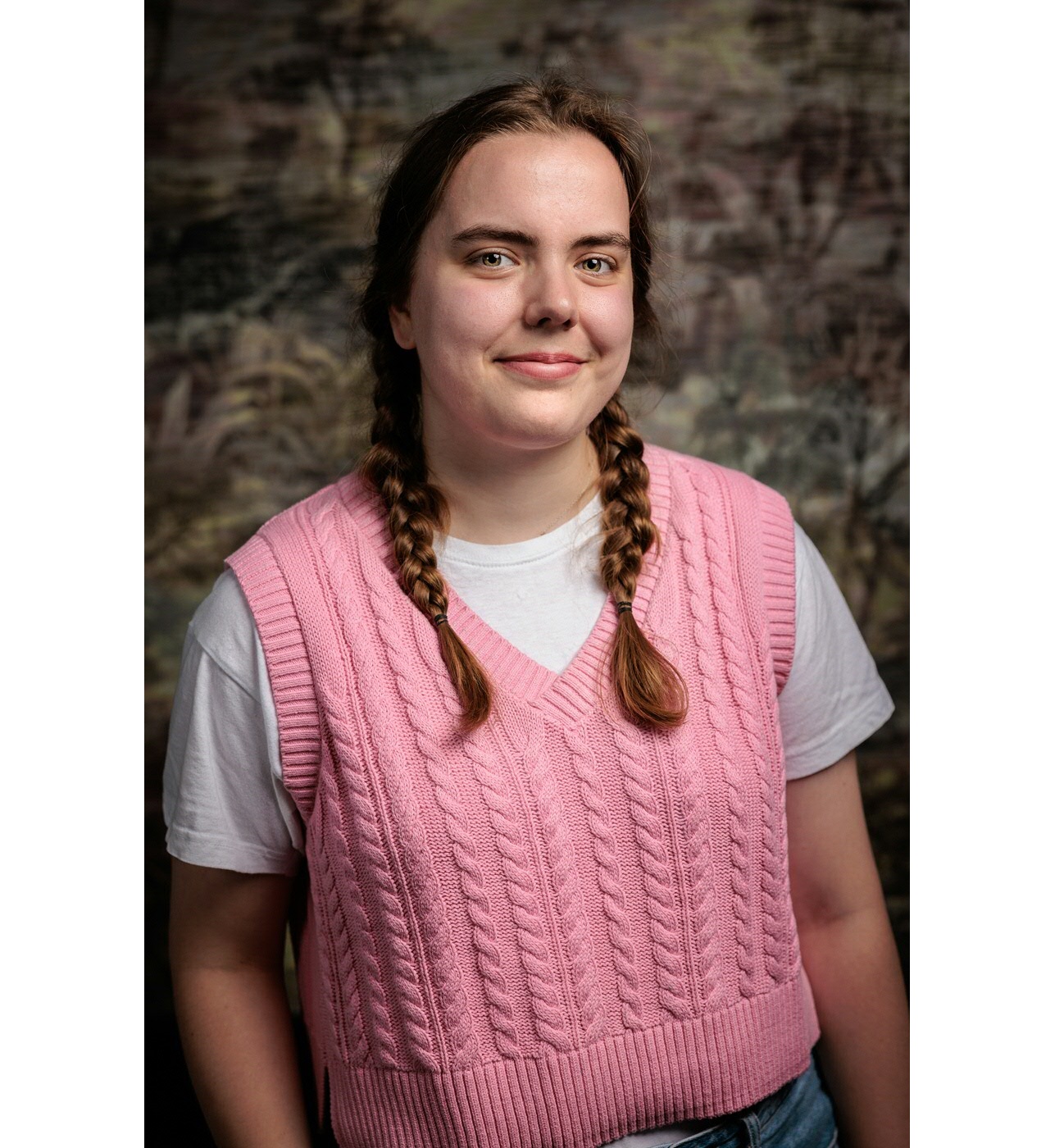
Hi! My name is Lynn Barsema, I am twenty-two years old and currently a second year American Studies Bachelor's student. I was born and raised in Groningen and currently live just outside the city. My hobbies include playing and listening to music - I play bass guitar - as well as hanging out with friends, and watching movies.
I chose American Studies because of how broad and interdisciplinary it is. I love writing and after visiting an Open Day the contents of the courses convinced me to choose the study. I was excited about the combination of different disciplines and how interconnected all the different subjects are. Within the courses we rarely focus on just one discipline. Instead, we look at history, literature, sociology, politics, economics, art, and more. This allows us to explore subjects we are interested in without the boundaries of a fixed field of research. One of the aspects that really cemented my choice to study American Studies is this freedom to explore and decide on what you want to do independently. This varies from course to course but throughout everything you get a lot of opportunities to pick subjects you are interested in. While a lot of the program focuses on the US we also talk about Latin America, the Caribbean and Canada which offer some nice variety. Furthermore, the issues we look at in the US can be applied to different countries as well. For me the US is an interesting place because they have some of the issues we encounter here in Europe as well, just on a much larger scale. One last exciting aspect of American Studies is the Minor Abroad, which allows you to complete part of your degree in the US (or another country in the Americas). I am planning on going next year and am excited to be able to experience American culture in real life instead of just learning about it from a classroom.
Read more about Lynn and why she chose to study American Studies in Groningen!
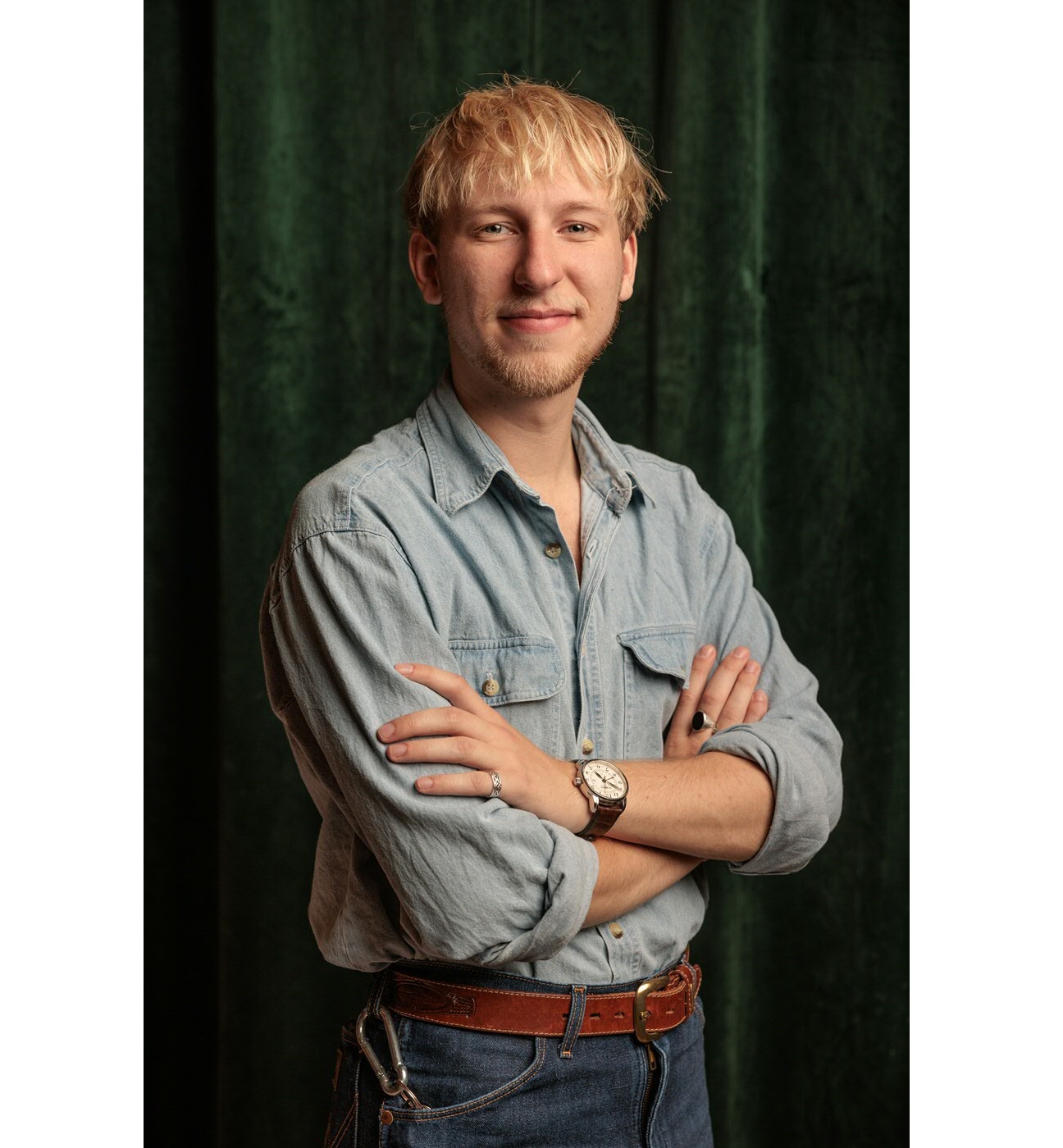
Hi! My name is Rutger Renkema, I am twenty years old and currently in my third year of the Bachelor American Studies. I have been living in Groningen since 2022, after moving here from Steenwijk. I love to go out to get coffee with friends and thrifting. My favorite movie is Scream – a movie that you can watch for one of the American Studies courses!
I chose American Studies because of its diversity and interdisciplinarity, and my broader interest in American culture and politics. I was pleasantly surprised how you are not just studying history, politics, economics or sociology, but all of these, simultaneously. American Studies is a field that thrives on interdisciplinary exploration. Instead of confining yourself to a single perspective, branch out and immerse yourself in history, literature, sociology, politics, art, and more. You can really dive into the hidden corners of American history and uncover narratives that challenge conventional ideas. You also dig into the stories of underrepresented communities, women, LGBTQ+ individuals, and other marginalized groups whose stories have often been overlooked. During high school, I always thought the United States was really interesting, and really had an interest in it. This doesn’t mean that you have to be extremely interested in the US of course. It often shows more extreme forms of social problems we encounter here in Europe, which is why this study is more relevant to non-Americans than you might think. You also get to study Latin America and Canada, which is a great bonus! I am also planning on doing my minor in the US, which is a unique opportunity to live in the US and experience the culture firsthand. You also get priority to go to American universities over other students.
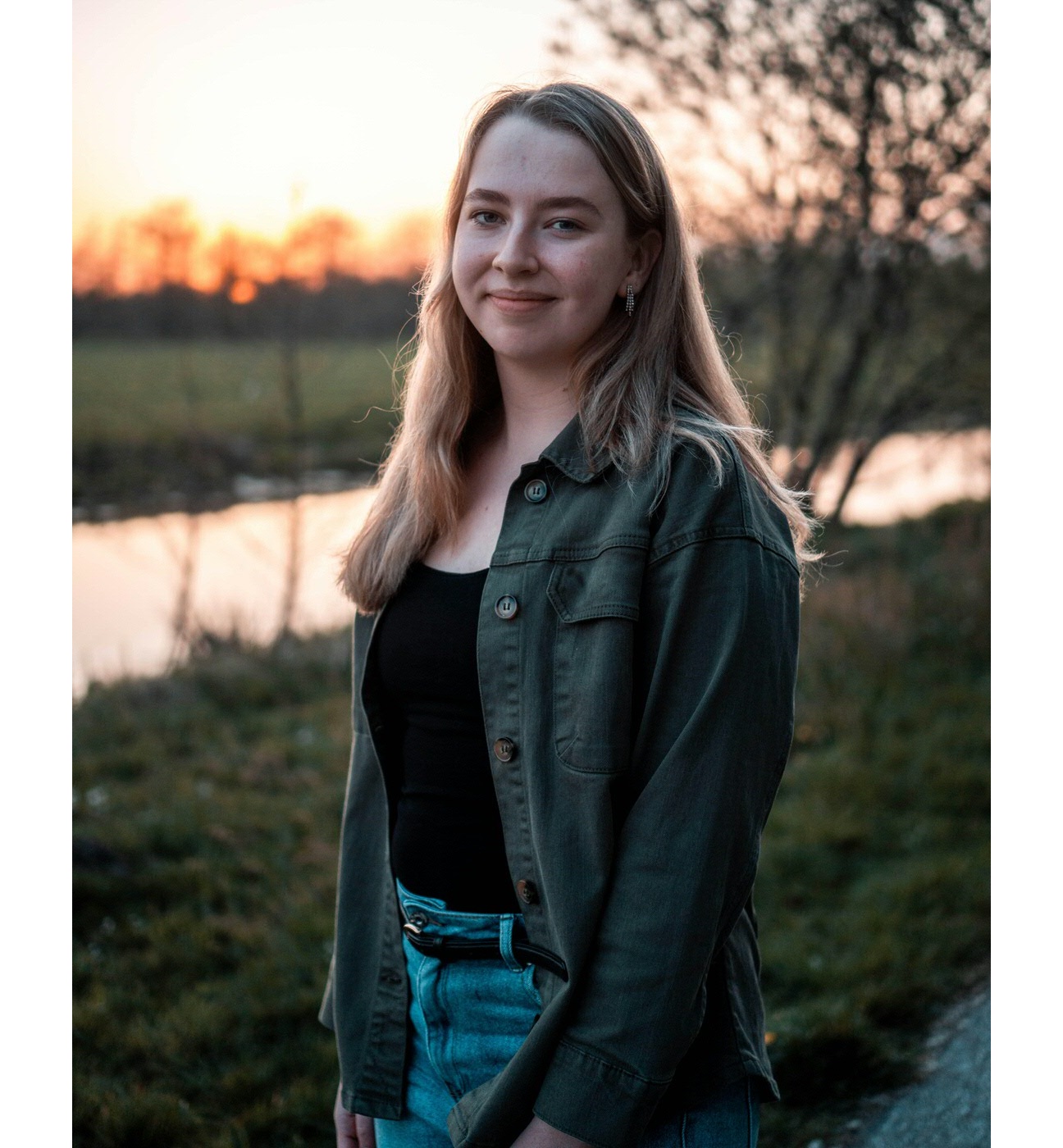
Hi! My name is Eline Santema, I am twenty years old and currently in my third and last year of the Bachelor American Studies. I was born and raised in the beautiful province of Friesland and commute to Groningen for my classes. I love to sing, go out to get coffee with friends and I am trying to write a romance novel in my free time. My favorite movie is - of course - Legally Blonde.
I chose American Studies because of its diverse and interdisciplinary program. I love the fact that you are not just studying history, politics, economics or sociology, but all of these at the same time! During high school, I always thought the United States was an interesting nation, but I never had a “special” interest in it. This completely changed when I started studying American Studies. The United States is such a diverse and fascinating country, in both positive and negative ways. It often shows more extreme forms of social problems we encounter here in Europe, which is why this study is more relevant to non-Americans than you might think. You also get to study Latin America and Canada, which is a great bonus!
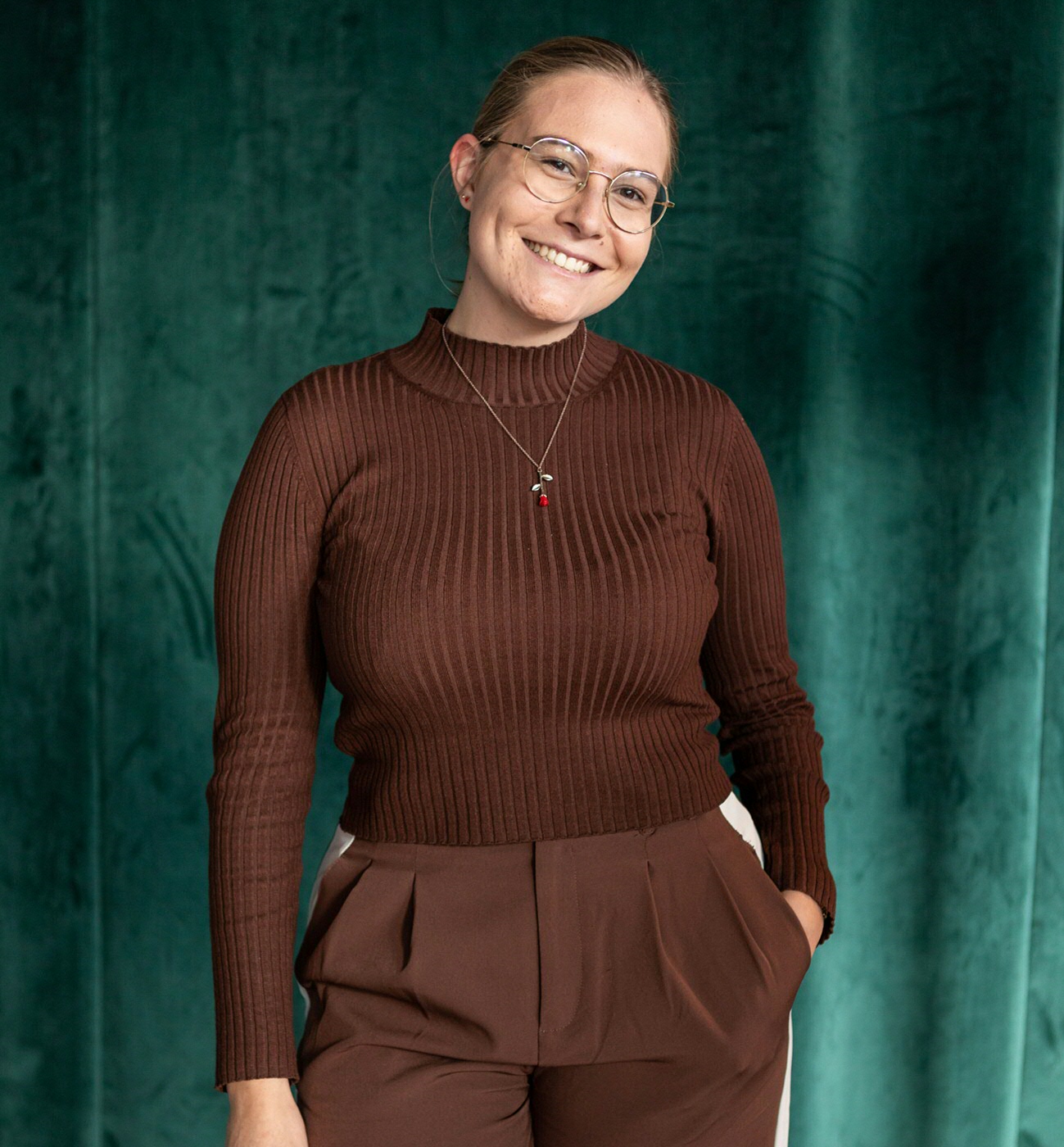
Hi! My name is Chloë. By the time you can find this little piece on the student ambassadors page I am twenty-two years old and a second-year BA American Studies student. I grew up in Germany and the Netherlands, and I am currently living in Groningen. Next to my studies I spend time in the Crossfit gym, I go for walks and runs, and I have an additional job. I also love to read books and watch movies/tv shows, and live life to the fullest with my best friends and family.
Before applying for American Studies at the UG, I attempted studying International Studies in The Hague and European Law in Maastricht. However, neither were the perfect fit and so I dropped out. I knew I wanted to study something with a certain international aspect, since international communities, politics, economics, history, cultures, etc. really interest me. The BA American Studies consists of this aspect and all these territories, and combined with the fact that program is really small (everyone knows everyone, teachers included, and you'll easily become friends with your fellow students), yet very highly regarded, made me apply. Students develop academic/research skills to an incredible extent, which is of course super handy for your future career. Besides, we have a very active study association (EPU) that organizes a ton of great events. In addition, joining (one of) their commissions provides you with amazing experiences and memories.

